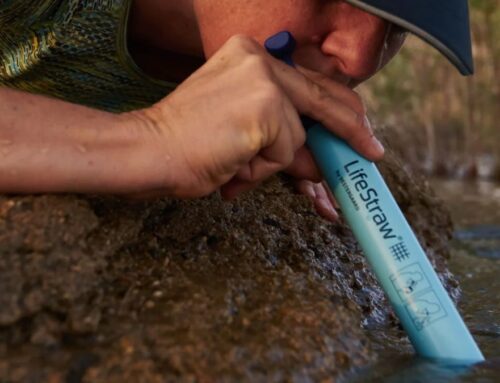ADM’s well leak draws allegations of environmental violations
December 20, 2024
Archer Daniels Midland (ADM) was the first company in the nation to operate a permitted commercial carbon sequestration facility at its Decatur location.
But earlier this year, the agricultural company found the monitoring well was leaking at the Decatur facility. The well lies a few miles outside the Mahomet aquifer, the primary drinking water source for almost a million people, according to the Prairie Research Institute.
The company labeled itself as a leader in the growing carbon sequestration industry, promising to safely inject carbon dioxide thousands of feet into the ground to store permanently and mitigate the effects of climate change.
Overall, the entire carbon sequestration project cost was about $414 million. The project received about $281 million in federal tax dollars from U.S. Department of Energy grants. ADM and its partners put in about $133 million, the grant shows.
In August, the U.S. Environmental Protection Agency (EPA) issued ADM a notice that alleges the company of violating federal regulations and not following proper emergency response plans after the leak was detected in March. On Sept. 19, the agency issued a proposed enforcement order that alleges violations of the Safe Drinking Water Act and its federal permit by allowing carbon dioxide fluids to leak into “unauthorized zones.” The EPA also noted ADM failed to monitor and conduct testing at a well for months.
ADM also found another leak at its carbon capture and storage site in late September and paused injections soon after. E&E News, which reports daily on energy and environmental issues, reported in early November that ADM found two dozen other wells near its leaky carbon sequestration site which could allow carbon dioxide fluid to travel toward drinking water supplies.
ADM claims the wells pose no threat to public health, but some advocates and citizens are skeptical.
“CO2 cannot be put safely underground either for long-term sequestration or enhanced oil recovery,” Carolyn Raffensperger, executive director of the Science & Environmental Health Network, said in an interview. “All of the plans around the world claiming that CO2 will stay put deep below the Earth’s surface need to be re-evaluated.”
ADM Spokesperson Jackie Anderson said in an email the company is working closely with the EPA following the well leaks that she said occurred at a depth of about 5,000 feet and pose no threat to surface water, groundwater or public health.
“We continue to be confident in the safety, security and effectiveness of CCS as a greenhouse gas mitigation technology and its potential to bring new industries and economic opportunities to the entire state of Illinois,” Anderson said.
The EPA released in its findings: “The information that EPA has reviewed does not suggest any threat to drinking water in the area. Nearby public water systems draw from the Lake Decatur reservoir or use wells less than 110-feet deep. The fluid movement happened at approximately 5,000 feet below ground level. This means the underground drinking water source is separated from the fluid by almost a vertical mile and that it is protected by layers of rock.
“Public water systems in the area will continue to monitor and report on contaminants regulated under the Safe Drinking Water Act and have been advised to monitor and track secondary water quality criteria, such as taste and odor.”
The SAFE CCS Act was passed in Illinois earlier this year and details safety requirements for carbon capture and storage projects in the state. However, the law doesn’t include specific protections for large sources of drinking water.
An area sequestration project, the One Earth Sequestration project, is currently stalled because of the SAFE CCS Act. Under the act, Illinois won’t consider any new carbon capture pipeline proposals until at least July 1, 2026.
Rep. Carol Ammons filed a bill in September that would ban these projects from being built in areas where the main source of drinking water is an underground aquifer. The bill was read in the House of Representatives in November and the vote has since been delayed.
Mahomet aquifer is the sole source of water in the region
The Mahomet aquifer supplies hundreds of millions of gallons of water to Central Illinois residents every day, according to the Prairie Research Institute, which said “protection and management of this groundwater resource is critical to maintain and grow the region’s economy.” The institute conducts research on the natural and cultural resources of Illinois and is part of the University of Illinois at Urbana-Champaign.
Pam Richart, co-director of the environmental nonprofit Eco-Justice Collaborative, has advocated for the protection of the Mahomet aquifer. She said the aquifer is designated as a sole source aquifer by the EPA, meaning it’s the only source of drinking water for a region.
“Essentially it means, if your water is contaminated, there’s no readily available, economic or physically available, supply of water that can be reasonably acquired,” Richart said in an interview. “That’s why we should be concerned. You protect your water, and it gets contaminated; What are you going to do?”
Richart said if the carbon dioxide from the wells were to leak into the aquifer, the pH of the water would be changed, and the reaction would form carbonic acid. Inside Climate News reported that high-volume CO2 exposure can lead to CO2 poisoning, which can cause temporary unconsciousness or even death — yet the EPA says there is no threat to drinking water.
Despite sustainability claims, ADM racks millions in environmental violations
Archer Daniels Midland, which operates 182 processing plants and 278 Procurement Centers in just North America, said it supports sustainability and environmental friendliness. It releases annual reports that detail its progress and goals in reducing its carbon footprint, limiting its use of natural resources, enhancing food security and more.
“We’re a leader in sustainability, scaling across entire value chains to help decarbonize the multiple industries we serve,” its 2023 sustainability report said. “Around the globe, our innovation and expertise are meeting critical needs while nourishing quality of life and supporting a healthier planet.”
ADM’s Jackie Anderson said the company takes its commitment to sustainability “very seriously” and it requests an independent third party to verify key parts of its sustainability reports before publishing them.
However, according to Violation Tracker, a nonprofit organization that collates federal and state data on violations and fines against corporations, ADM has received almost $3.5 million in environmental violations in the past decade. These ranged from violations of the Clean Water Act, situations involving measurable air pollution and more.
Science & Environmental Health Network’s Raffensperger said ADM’s claims of sustainability are refuted by its track record. But she noted ADM is just one example of a major problem — well leaks.
“There is a huge industry supported by government, industry-funded universities and private corporations that have been touting carbon capture and storage as a way the fossil fuel industry can have its cake and eat it too — they can keep polluting but capture the CO2 and thereby claim they are solving the very problem they created,” she said.
She said ADM could be said to be engaging in a practice called greenwashing, which the United Nations defines as “misleading the public to believe that a company or other entity is doing more to protect the environment than it is” and promoting “false solutions to the climate crisis that distract from and delay concrete and credible action.”
Wren Montgomery is an associate professor at the Ivey Business School in London, Ontario, and studies greenwashing. She said there has been a surge of corporations making major claims of sustainability in recent years.
“Those are interesting when we study greenwashing because they’re focused on a lot of stakeholders … The key thing is just that it’s in the future,” Montgomery said in an interview. “It’s these future promises that are really hard to test.”
Montgomery is a researcher for the Greenwash Action Lab, which contains research on corporate greenwashing. Its website links to an article about the 10 kinds of greenwashing that companies engage in. She said she believes ADM is engaging in selective disclosure, which is when a company emphasizes a few areas that it’s achieving sustainability but fails to mention big problems it’s causing in others.
ADM’s Anderson didn’t directly respond to accusations of greenwashing. She referred to ADM’s goals to reduce its greenhouse gas emissions and the company’s progress shown in its annual Corporate Sustainability Report.
Richart with the Eco-Justice Collaborative said she believes by focusing on green claims and marketing while significantly threatening environmental safety, ADM is putting many people at risk.
“I think they went into this process thinking, ‘Look what we can do. We can show the world how great we are, and we’re going to sweep all those other problems we’ve got,’” she said. “But that’s not green, right?”
Contributing reporting by Mariah Trujillo.
Search
RECENT PRESS RELEASES
Related Post




